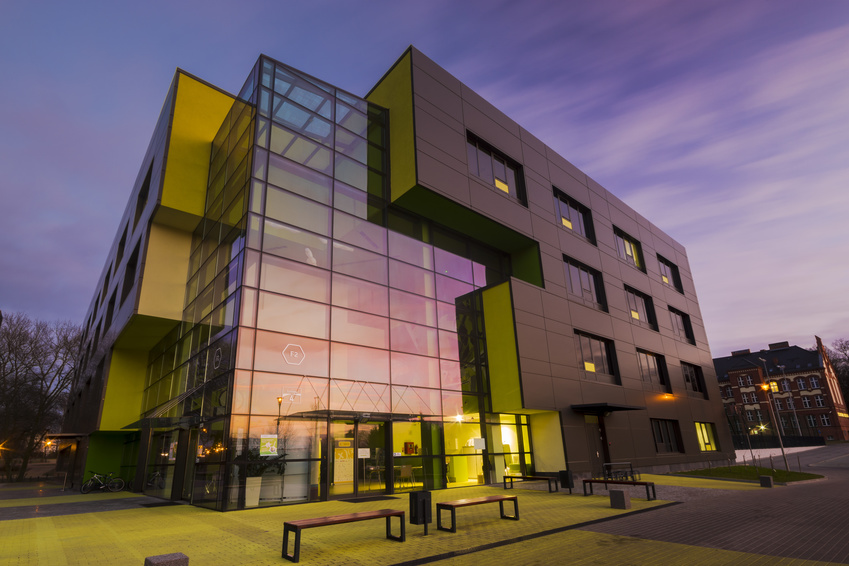
From CBD offices to industrial warehousing, shopping centres and the local shopping strip, there are a plethora of commercial property investment options out there. But which one is the right option for you?
In this article, we’ve broken it down into three of the most popular investment options: offices, retail and industrial, and we’ve provided some pros and cons for each of them to help you make up your mind.
Investing in offices
A quick glance at the projections for Melbourne’s burgeoning CBD would seem to indicate that offices are a huge opportunity for eager investors. With Melbourne CBD office rents set to rise 40 per cent in 5 years, what’s not to love about offices in 2019?
Further, and we need to be careful not to generalise here, commercials tenants leasing offices tend to be of a slightly higher calibre and will often take better care of the premises than other types of commercial tenants.
So, what’s the downside, you say?
Well, investing in offices typically involves long lease periods. That’s generally a real bonus as long as the rental agreement is structured correctly, but it can be a burden if it is not. Canny landlords should always be careful to build in annual rent increases to capitalise on positive economic growth.
Consequently, tenant expectations can be higher and that means you may need to do a little more with the property to encourage signing a long term lease. Air conditioning, internet, security and office fit-outs are the usual suspects when it comes to upgrading commercial offices in between tenancies. Parking too can add substantially to the initial purchase price of the premises.
Mid- to long-term, however, commercial office space in Melbourne is looking like a very attractive opportunity for high yields and solid capital growth.
Investing in retail
Investing in retail can be characterised by shops that sell goods and services such as restaurants, gyms, bars, cafes, homewares, clothing, shoes, giftware, jewellery, shopping centres and more. Basically, any retail outlet selling to the public.
The key to retail investing, of course, is location. The big plus for landlords with a well-located property and heavy consumer foot traffic is that they can charge a higher rent per square metre than almost any other commercial property type.
Consequently, retail premises are one of the most popular asset types for commercial landlords to invest in. The downside to this popularity is that yields tend to be lower than for office and industrial properties.
Upgrading the premises with internal fit-outs every 4-5 years in line with changing consumer trends and expectations can also affect yields.
The biggest risk to retail investing is consumer confidence and the changing face of the local shopping strip. ‘Mum & Dad’ retailers selling homewares, giftware, shoes and clothing are facing huge headwinds against internet shopping. A change in purchasing behaviour amongst younger Australians especially means the local shopping strips and traditional fashion strongholds like Chapel St have seen abnormally high vacancy rates because of falling demand.
Instead, the big growth options for retail lie in hospitality; cafes, restaurants, bars and takeaways; and in health and fitness studios like yoga, Pilates and mini-gyms.
Retail landlords should carefully vet their prospective tenants and make sure their businesses will be successful. Struggling tenants can mean late rental payments and extended vacancy periods between tenancies.
Investing in industrial property
Investing in industrial property generally covers factories, workshops, warehousing and premises using heavy machinery.
The pros of investing in industrial property are higher yields then retail or offices and much longer leases due to the expensive and specialised nature of the fit-outs required by the tenant. Importantly, industrial property held up extremely well in comparison to other forms of property investing during the most recent downturn.
Tenants of industrial properties commonly pay higher rents to amortise the high costs of these specialised fit-outs. Another advantage is that the landlord retains improvements to the property at lease-end, which often means that they can command higher rents for the property when they re-lease it.
The pro here can quickly become a con, however, if the tenant’s business doesn’t succeed and the very same specialised fit-out means it’s difficult to attract another tenant. Extended vacancies can be a real financial challenge for landlords in this sector and it also should be stated that some industrial businesses cannot adapt quickly to changing conditions in the economy. Investing in large industrial premises is not for the feint-hearted.
Again, landlords need to vet their tenants carefully and try to understand their long term prospects of success.
Finally, it should also be remembered that industrial properties, usually out in the suburbs, tend to have relatively lower capital growth compared to offices and retail.
Interestingly, one of the fastest growing opportunities in industrial commercial property investing lies in warehousing, which seems to have undergone something of a boom in recent years in Melbourne – most likely due to the rise in online shopping.
Not sure where to start? If you’d like an expert consultation on which type of commercial property to invest in, talk to the experts at HKC. Drop into our offices in South Yarra for a cup of coffee and a chat, we’re always happy to help. Call now 0404 398 663.

